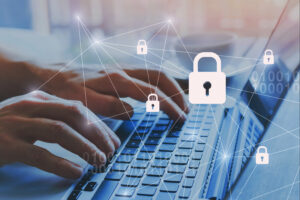Computer Security Day: Staying Safe in the Digital World
November 27, 2023 | Written by Jerry Nicklow
Computer Security Day: November 30

As we dive deeper into the digital era, Computer Security Day on November 30th serves as a crucial reminder. It’s a day dedicated to encouraging us to protect our digital information from hackers and cyber thieves.
In this digital age, being aware and proactive about computer security is more important than ever. Let’s dive into some practical steps to keep our computers and personal data secure.
Why Computer Security Matters
Imagine waking up to find your bank account drained or your personal photos leaked online. These nightmares are not just limited to movies.
In 2017, a massive ransomware attack named WannaCry affected over 200,000 computers across 150 countries. This incident locked out users from accessing their data and highlighted the importance of computer security in our daily lives.
Essential Security Tips
- Use Strong Passwords: A strong password is your first defense against unauthorized access. Avoid using common words or predictable details like your birthday. Instead, create a complex combination of letters, numbers, and symbols. For added convenience, consider using a reputable password manager to store and generate strong passwords.
- Regular Updates: Keeping your software updated is crucial. Software updates often include security enhancements that address vulnerabilities. This applies to your operating system, antivirus software, and any applications you use regularly. If you have an older computer with software that is no longer supported, it may be time to look for a new computer. Your information is much more valuable than the few hunndred bucks it will take to get a new laptop.
- Beware of Phishing Scams: Phishing scams are deceptive techniques used by cybercriminals to extract personal information. These scams often come in the form of emails or messages that appear to be from legitimate sources. Always double-check the source and avoid clicking on suspicious links or attachments.
- Use Antivirus Software: A robust antivirus program can detect and block various types of malware and viruses. It’s essential to keep your antivirus software updated to ensure it can protect against the latest threats.
- Secure Your Wi-Fi Network: An unsecured Wi-Fi network is an open invitation to cybercriminals. Protect your network with a strong password and consider hiding your network name (SSID) from being publicly visible.
- Backup Your Data: Regular data backups can be a lifesaver in case of a cyberattack. Whether it’s through an external hard drive or a cloud-based service, ensure that you have a recent backup of all your important files.
- Educate Yourself and Others: Staying informed about the latest cyber threats is crucial. Share your knowledge with friends, family, and colleagues to create a more aware community.
- Enable Multi-Factor Authentication: Wherever possible, use mulit-factor authentication (MFA). This adds an extra layer of security by requiring a second form of verification, typically a code sent to your phone, in addition to your password.
- Be Cautious with Public Wi-Fi: Public Wi-Fi networks can be breeding grounds for cyber threats. Avoid conducting sensitive transactions like online banking on public Wi-Fi. If necessary, use a virtual private network (VPN) for enhanced security.
- Monitor Your Accounts: Regularly check your online accounts for any unusual activity. This includes your email, bank accounts, and social media profiles. Early detection of suspicious activity can prevent significant losses.
Real-Life Consequences of Ignoring Security
Ignoring computer security can have serious consequences. For instance, in 2018, a family’s home security cameras were hacked, leading to a significant invasion of privacy. In another case, an individual’s personal photos and documents were held for ransom. These examples highlight the importance of proactive computer security measures.
Is There Insurance For Personal Cyber Liability?
Today’s insurance markets have adapted to the times. More insurance companies are offering personal cyber liability insurance to cover incidents such as the one above. Check with your insurance agent to see if this coverage is available to you. It can usually be added onto your home insurance policy. And not there are insurance companies offering it as a stand alone personal cyber insurance policy.
For Businesses and Workplaces
In a business setting, computer security is even more critical.
Protecting client information, financial records, and confidential business data is essential. Regular training sessions for employees on best security practices and investing in professional IT services can greatly enhance a company’s digital security.
It ia also imperitave to have the right cyber insurance coverage for your busness. Taking all of the precautions in the world still cannot guarantee your data safety. One incident can bankrubt your business.
In Conclusion
Computer Security Day is more than just a reminder—it’s an imperative call to action. By adopting these security measures, you’re not only safeguarding your digital life but also contributing to a safer online community. Remember, maintaining security is an ongoing journey. Stay vigilant and safe.
